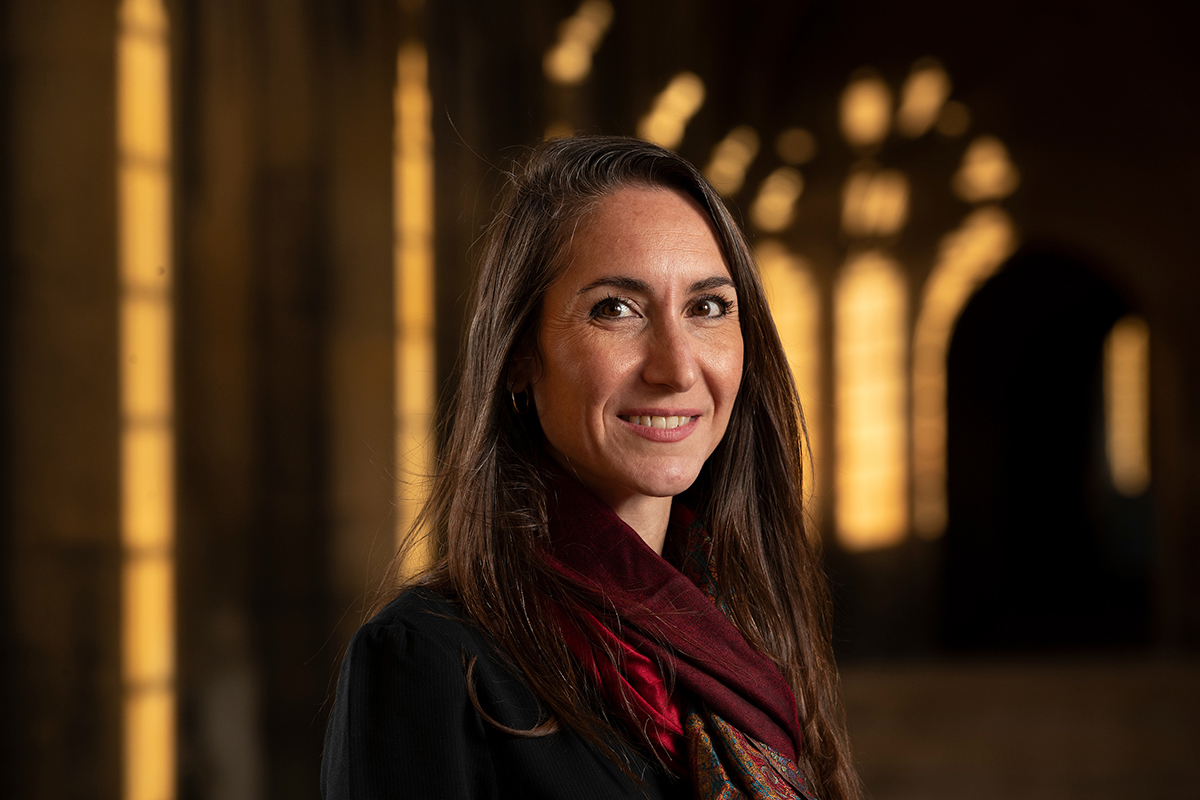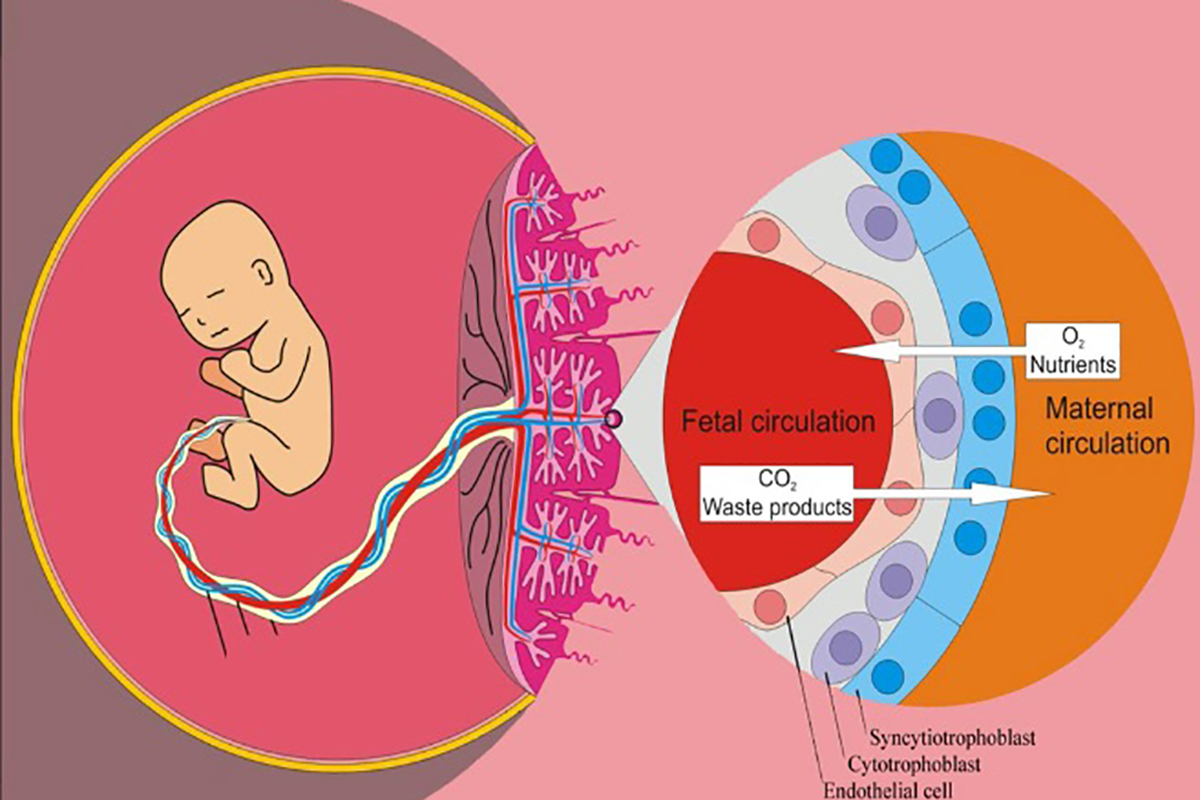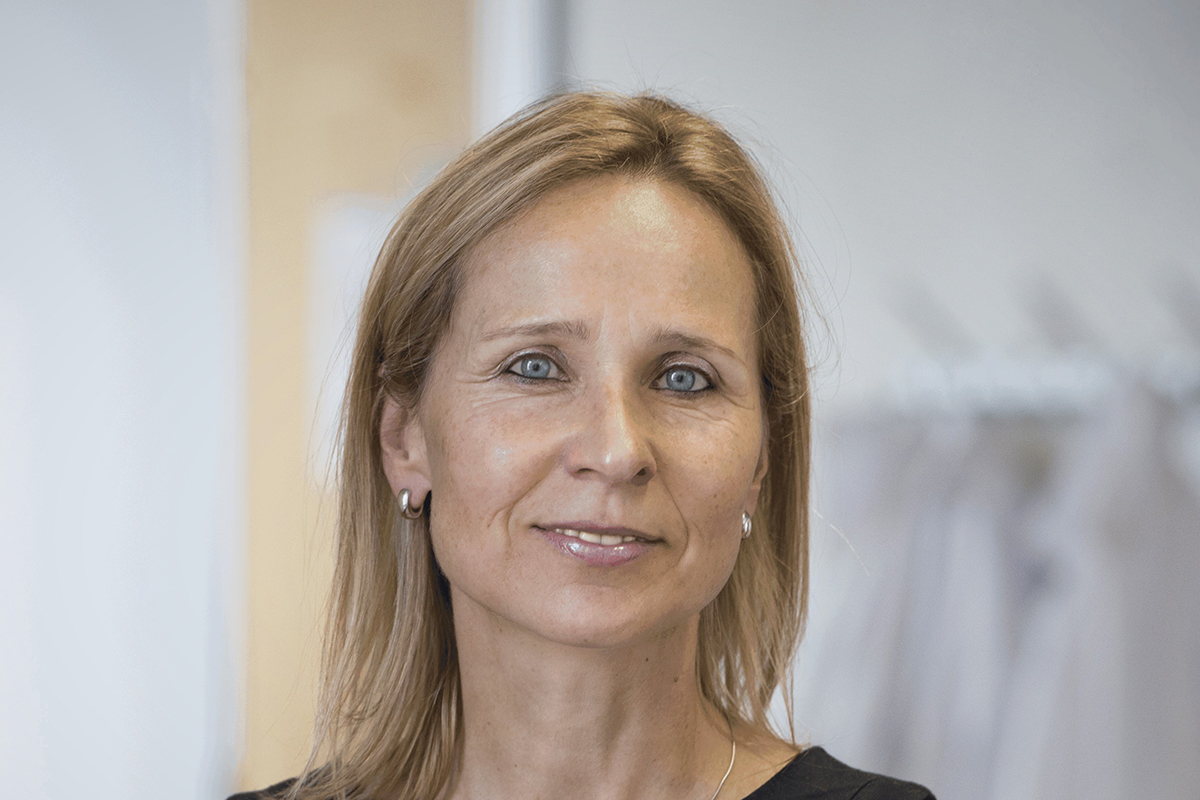How pregnancy shapes our health very early on
Amanda Sferruzzi-Perri examines the communication between mother and fetus during the pregnancy, showing the influence it has on the health of mothers and children long after birth. Based on her groundbreaking research on the placenta, she was awarded the 100,000 CHF Hans Sigrist Prize from the Hans Sigrist Foundation at the University of Bern.

"At first I thought that they had accidentally contacted me," laughs the Australian-born researcher at the University of Cambridge when asked in a Zoom interview about her reaction to being notified of the prize. "This year has been quite challenging, and the news was like a ray of light in the darkness - I was brought to tears!” She says that receiving the prestigious Hans Sigrist Prize was a great honor, not only for her, but also for her field of research.
Dr. Amanda Sferruzzi-Perri is being honored for her groundbreaking work on the molecular signaling pathways governing the interaction between mother and child during pregnancy, and their long-term effects on the health of both of them, later in life. This knowledge is contributing to the development of new approaches to prevent serious complications during pregnancy, such as gestational diabetes or preeclampsia, and to improve the lifelong health of mothers and their children.

The placenta, a unique organ
"I have always been fascinated by how the human body works and was amazed to learn how common complications during pregnancy were – affecting one in five women," Amanda Sferruzzi-Perri reflects. When she first started specializing in the field, much less was known about how these complications arose, and even less was known about how to prevent or treat them. Amanda Sferruzzi-Perri focused her PhD research on investigating hormones in the mother's body that regulate fetal growth, and delved into research on the placenta; a temporary but vital organ that develops during pregnancy. The placenta provides the fetus with nutrients and oxygen. It also secretes signaling factors, including hormones that alter the mother’s body so she supplies nutrients and oxygen to the fetus. If the placenta does not function properly, the fetus will fail to grow with negative impacts on pregnancy outcome for mother and child. There may also be lasting effects on the child. This is because fetal organs are very sensitive to changes in nutrient and oxygen supply, and may be permanently altered during development, leading to organ dysfunction with lifelong consequences. In adulthood, this can lead to an increased risk of developing type 2 diabetes, cardiovascular problems, or obesity. "By understanding more precisely how the placenta develops, we can better understand the development of pregnancy complications and the origins of later life disease risks. Importantly, we may be able to identify how these can be prevented," explains Amanda Sferruzzi-Perri. Her current work now focuses on this.
Health of both parents plays a role in pregnancy
Certain diseases in adulthood are already "programmed" in the mother's womb – and some factors have an influence on the child's health even before pregnancy - because of changes in the mother’s eggs. These include whether the mother has been exposed to stress, is overweight, eating a poor quality diet, and how well her body is able to undergo the massive changes that pregnancy entails. The other parent also has an important influence: "We now know that the environment of the father plays a role in the formation of the placenta and the development of the fetus," says Sferruzzi-Perri. For example, when the father is overweight, this can lead to changes in his sperm, and possibly also the hormonal signaling pathways in the mother at conception, which in turn can impact the development of the placenta. "We have considerably less data on the importance of the father’s environment and health status, compared to that of the mother. However, this is a key area which we hope to explore soon", she clarifies. A greater understanding of the environmental factors that affect the placenta could help doctors provide better health and life-style advice to couples who wish to have children, or assist in the design of therapies to prevent placental problems during pregnancy. These, in turn, will improve lifelong health of both the mother and child.

Far-reaching social consequences
Prof. Christiane Albrecht from the Institute of Biochemistry and Molecular Medicine led the 2020 prize committee. She is also a member of the National Center of Competence in Research TransCure and proposed this field as the 2020 academic field for the Hans Sigrist Prize. "It is amazing to see the influence which these processes, that occur so early in pregnancy, have on the later life of the mother and her offspring," says Albrecht. For example, problems with the formation or functionality of the placenta can lead to miscarriages or developmental disorders of the child. Both of these factors are devastating for parents. In addition, complications during pregnancy lead to health problems for the child as well as for the mother, which also puts a strain on the healthcare system. "The work of researchers in this field has far-reaching implications on our well-being and on society - so it is important that this research has received recognition and greater visibility through the 2020 Hans Sigrist Prize," Albrecht explains.
The 2020 Hans-Sigrist-Symposium will be postponed
This year's Hans Sigrist Symposium, at which the prize winner will give the keynote address, will take place in 2021, due to the pandemic. The symposium will also feature lectures from other experts in the field. The Hans Sigrist Prize, which is traditionally presented at the Dies academicus of the University of Bern in December, could not be presented in person. "I was a bit sad that I could not come to Bern right now" says Sferruzzi-Perri. "But I am very grateful to the Foundation because it will enable me to launch new projects with researchers in Bern - especially larger projects which can only be tackled as a team". For example, the placental tissue samples that Christiane Albrecht collects in Bern for her research, and especially the techniques she has established in the field of placental research on human tissue, will be valuable to their future collaboration.
ABOUT AMANDA SFERRUZZI-PERRI
- Born 1980 in Melbourne, Australia
- 2001 Undergraduate degree, Bachelor of Science, University of Adelaide, Australia
- 2007 PhD, Department of Obstetrics and Gynaecology, Adelaide
- 2008-2010 Overseas Biomedical CJ Martin Research Fellow, University of Cambridge, UK
- 2011-2014 Next Generation Fellow, Centre for Trophoblast Research, Cambridge, UK
- 2015-2019 Royal Society Dorothy Hodgkin Research Fellow, Department of Physiology, Development and Neuroscience, Cambridge, UK
- Since 2019 Honorary Associate Professor of Maternal and Fetal Medicine, Women's Health Institute, University College of London, UK
- Since 2019 University Lecturer in Reproductive Physiology, Department of Physiology, Development and Neuroscience, University of Cambridge, UK
Website of Dr. Amanda Sferruzzi-Perri at the University of Cambridge
THE HANS SIGRIST PRIZE
The Hans Sigrist Foundation reaches out to all the faculty members at the University of Bern annually to request prize field proposals. The 2020 Hans Sigrist Prize field was proposed by Prof. Christiane Albrecht of the Medical Faculty. Albrecht was then selected by the Board to lead the 2020 prize committee, which nominated Dr. Amanda Sferruzzi-Perri for the prize, after an extensive process of reviewing mid-career academic researchers in the field. The prize money may be used by the winner at his or her own discretion within the scope of the research objective.
About the author
Nathalie Matter works in Media Relations at the University of Bern and is responsible for health and medicine topics.